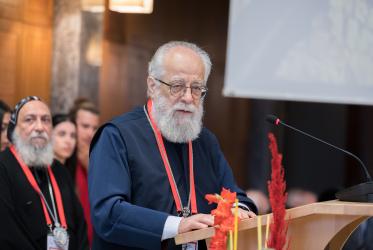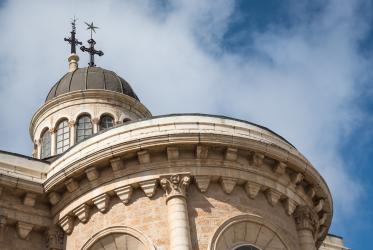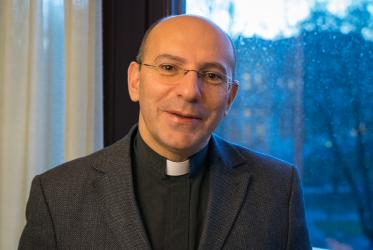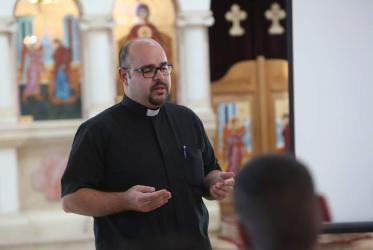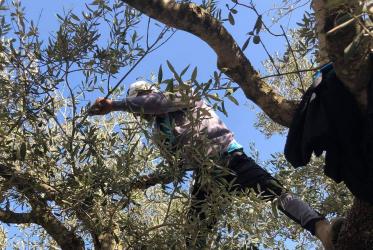Displaying 1 - 19 of 19
Promoting human dignity through art
06 September 2022
In Lebanon, “without peace there is no justice”
21 July 2021
فلسطينية مسيحية تعمل من أجل السلام وتتوق إلى قادة شجعان
11 December 2020
مسكوني فلسطيني مفعم الأمل لا التفاؤل
10 December 2020
Palestinian Christian peace worker yearns for courageous leaders
10 December 2020
A hopeful, but not optimistic Palestinian ecumenist
09 December 2020
Fr Jamal Khader: “We need to keep hope alive” in Palestine
25 November 2020
“Your life is in peace when you collect the olives"
29 October 2020



